Choosing the Right Soil for Your Cannabis Plants
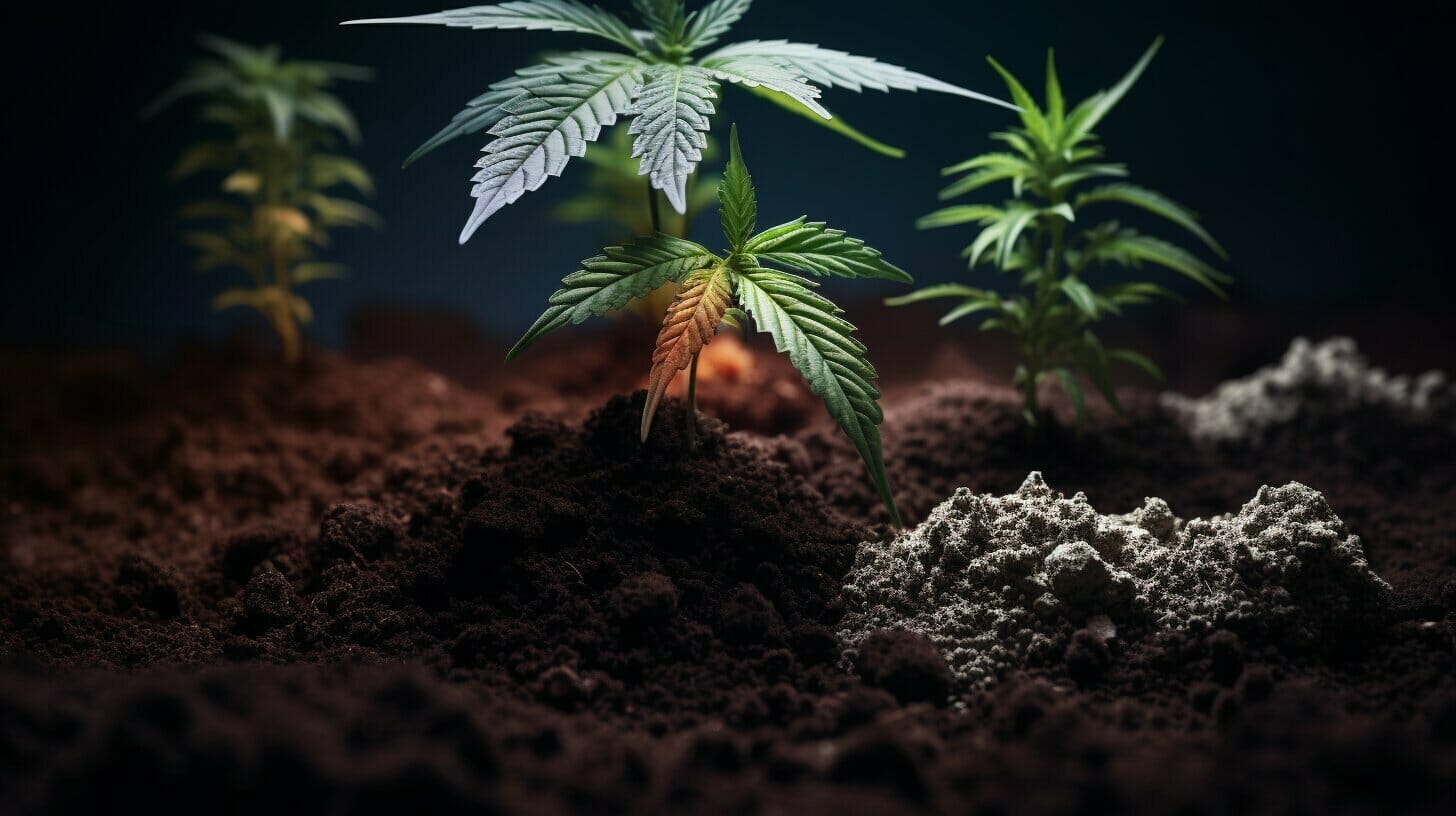
Choosing the right soil for your cannabis plants is one of the most important decisions you’ll make as a grower. The soil you use can have a significant impact on your plants’ growth, yield, and overall health. So, how do you choose the best soil for your cannabis plants? Our cannabis soil guide will show you how.
Key Takeaways
- Choosing the right soil is crucial for healthy and thriving cannabis plants
- Organic soil is the best option for cannabis cultivation as it provides essential nutrients and beneficial microbes
- Soil amendments, proper pH level, and nutrient balance are crucial for optimal plant growth
- Regular soil testing and maintenance can prevent common issues like nutrient deficiencies, pests, and diseases
Understanding the Basics of Cannabis Growing Mediums
Cannabis plants require a suitable growing medium that provides the optimal environment for root development, water retention, and nutrient absorption. The right growing medium can significantly impact a plant’s growth rate, yields, and overall quality.
There are various types of growing mediums available for cannabis cultivation, and each has its advantages and disadvantages. The most commonly used options are soil, hydroponics, and coco coir.
| Growing Medium | Advantages | Disadvantages |
|---|---|---|
| Soil | Easy to use, natural, and provides good drainage and nutrient retention | May contain pests, diseases, and inconsistent nutrient levels |
| Hydroponics | Fast growth, precise control over nutrient delivery, and reduced risk of pests and diseases | Requires a significant investment in equipment and maintenance |
| Coco Coir | Natural, sustainable, and provides good water retention and oxygenation for roots | May require buffering, high salt content, and inconsistent quality |
Soil-based growing mediums are the most popular choice for cannabis cultivation, especially for beginners. Organic soil mixtures that contain added nutrients and beneficial microbes are the best soil for growing cannabis. These soil mixtures provide the plant with everything it needs to grow healthy, potent buds.
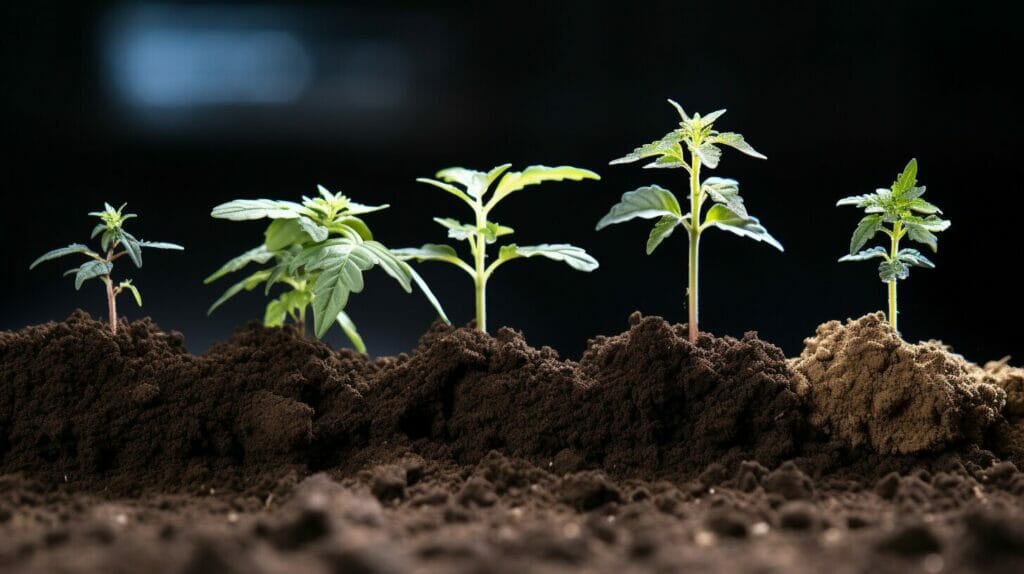
However, hydroponic systems and coco coir are gaining popularity due to their advantages in terms of increased yields, faster growth, and water efficiency. These options require a bit more knowledge and effort to set up and maintain, but they can be worth it for experienced growers.
It’s essential to choose the right growing medium for your cannabis plants to ensure optimal growth and yield. Consider your level of experience, growing environment, and personal preferences to determine the best option for you.
Choosing the Right Soil Mix for Cannabis Plants
Having the proper soil mix is crucial for your cannabis plants’ health and yield. Organic soil is the best choice, as it offers several benefits over traditional soil mixes. Organic soil is free from harmful pesticides, herbicides, and chemical fertilizers, making it safer for you and the environment. Additionally, organic soil contains a diverse range of microorganisms that help break down organic matter and make nutrients available to the plants.
When selecting a soil mix for your cannabis plants, it’s essential to choose a blend that contains the right balance of nutrients, moisture retention, and drainage. A high-quality soil mix should be loose, well-draining, and light. Avoid compacted soil, as it can restrict root growth and cause drainage problems.
Many high-quality soil mixes for cannabis plants include a blend of peat moss, perlite, and vermiculite. These ingredients offer excellent moisture retention, aeration, and drainage, providing an ideal environment for your cannabis plants to thrive.
Using compost and worm castings as soil amendments is also an excellent way to enhance soil fertility. Compost provides a rich source of organic matter, while worm castings add beneficial microorganisms that aid in nutrient uptake and disease prevention. Be sure to mix these amendments thoroughly into the soil before planting.
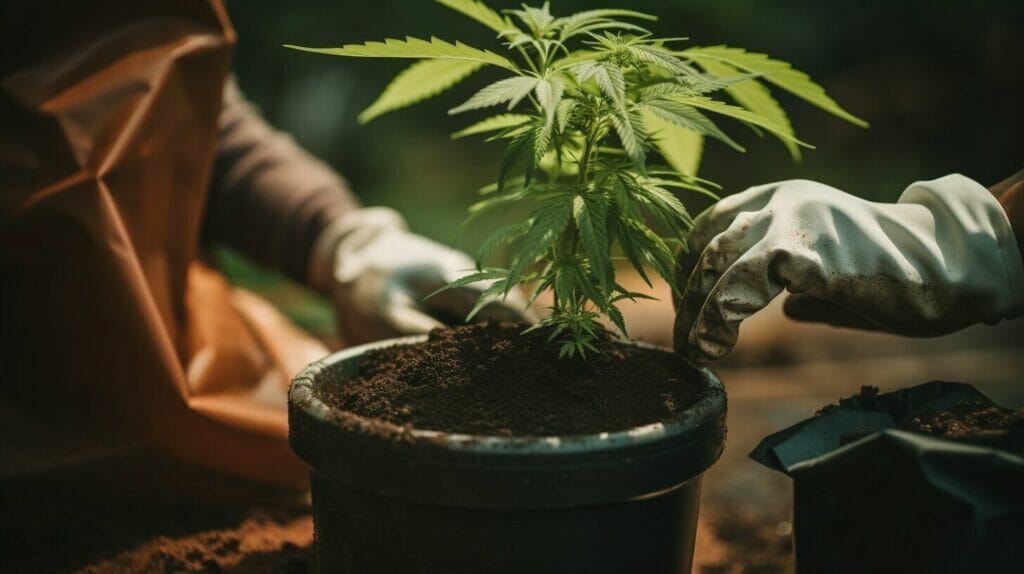
It’s worth noting that some cannabis growers prefer to create their own soil mix rather than relying on pre-made blends. If this interests you, be sure to research the proper ingredients and their ratios to create a high-quality mix that meets your plants’ needs.
Enhancing Soil with Amendments for Cannabis Plants
In addition to selecting the right soil mix, cannabis growers can enhance the soil’s nutrient content and structure by adding amendments. Soil amendments can improve the fertility of the growing medium, promote healthy plant growth, and enhance the flavor profile of the final product.
Organic amendments are particularly beneficial for cannabis cultivation, as they improve soil health without introducing harmful chemicals or synthetic fertilizers. Here are some common soil amendments for cannabis plants:
| Amendment | Description |
|---|---|
| Compost | A mixture of decomposed organic matter rich in nutrients such as nitrogen, phosphorus, and potassium. Compost improves soil structure, water retention, and microbial activity in the soil. |
| Worm Castings | The droppings of earthworms, which are rich in minerals and microorganisms beneficial to plant growth. Worm castings improve soil fertility, water-holding capacity, and disease resistance. |
| Bone Meal | A natural source of phosphorus, bone meal promotes root development and flower production in cannabis plants. It is also a good source of calcium and trace minerals. |
| Blood Meal | A high-nitrogen fertilizer made from dried animal blood, blood meal supports vigorous vegetative growth in cannabis plants. It is also a good source of iron and other micronutrients. |
When using amendments, it’s important to follow the manufacturer’s instructions on the package. Overuse of amendments can lead to nutrient burn or other soil imbalances that harm plant growth.
Pro-tip: To ensure the soil is not too hot, it’s best to start with a smaller amount of amendment than recommended and gradually increase the dosage over time. This will give the plants a chance to adjust to the new nutrient levels.
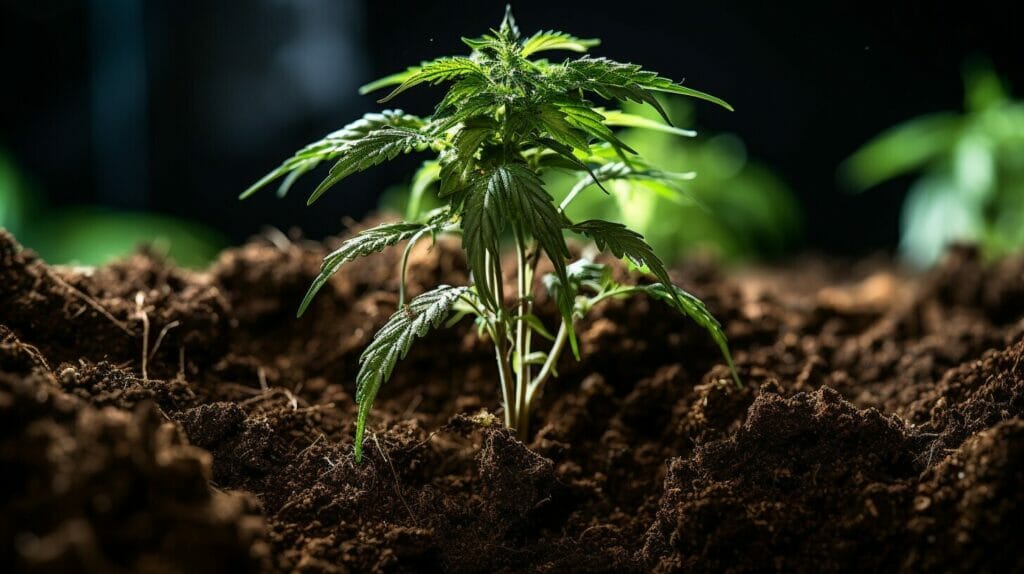
Understanding Soil pH for Cannabis Plants
One crucial factor that can impact cannabis plant growth and yield is the pH level of the soil. The pH scale ranges from 1 to 14, with 1 being highly acidic and 14 being highly alkaline. Cannabis plants require a slightly acidic soil pH range of 6.0 to 7.0 for optimal growth and nutrient uptake.
When the soil pH is too high or too low, cannabis plants may experience nutrient deficiencies or toxicities, leading to stunted growth, yellowing leaves, and reduced yield. For example, a high soil pH can cause iron deficiency, while a low pH can lead to excess manganese or aluminum toxicity.
Testing the soil pH regularly is crucial for maintaining optimal growing conditions for cannabis plants. pH testing kits are readily available at garden centers or online retailers and are easy to use. By understanding the soil pH, growers can adjust the soil acidity levels accordingly to ensure optimal nutrient uptake and overall plant health.
To lower the soil pH, organic materials such as sulfur, vinegar, or organic acidifiers can be added to the soil. To raise the soil pH, lime or dolomite can be added. However, it is essential to take care when adjusting the pH levels, as adding too much of any substance can lead to overcorrection and further problems.
By understanding and maintaining the optimal soil pH range, cannabis growers can produce robust and healthy plants that produce high yields of potent buds.

Nurturing Cannabis Plants with Essential Soil Nutrients
Proper nutrition is essential for promoting healthy cannabis growth, and providing the necessary soil nutrients is a critical aspect of achieving this goal. Cannabis plants require a combination of macronutrients, such as nitrogen, phosphorus, and potassium, as well as micronutrients like iron, copper, and zinc to thrive.
Macronutrients: These are the primary nutrients that cannabis plants require in larger quantities and play a significant role in the plant’s overall development. Nitrogen is essential for healthy foliage growth, while phosphorus promotes strong root development and flower growth. Potassium helps to increase the plant’s resistance to stress factors such as pests and disease.
Micronutrients: These are trace elements that cannabis plants require in smaller quantities, but they are no less important for achieving optimal growth and yield. Iron, for example, is vital for chlorophyll production and photosynthesis, while copper plays a critical role in enzyme production and protein synthesis.
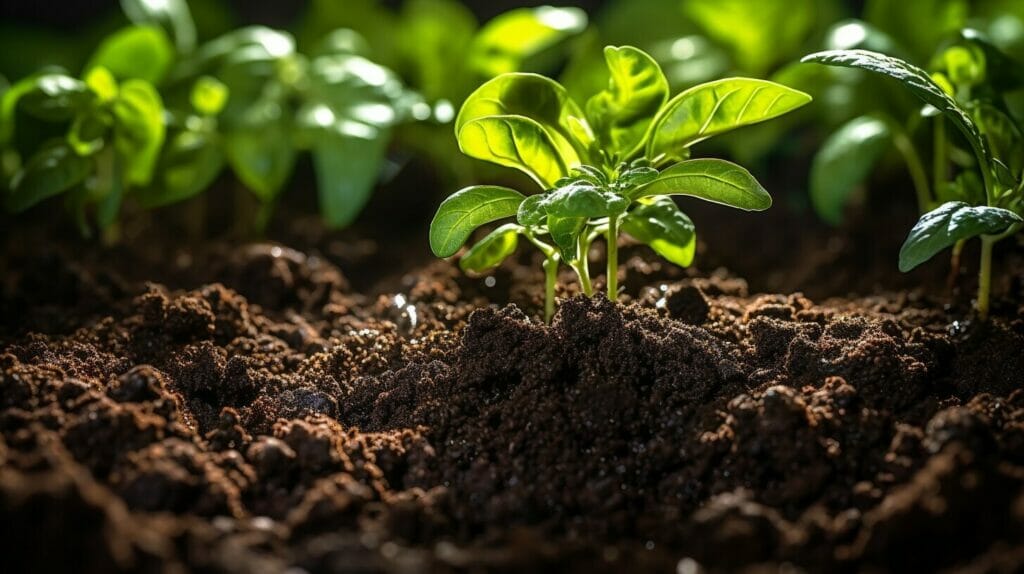
It is crucial to understand the specific nutrient requirements of your cannabis strain to provide the appropriate nutrients and maintain the ideal soil pH level. Soil tests can help determine the nutrient levels present in the soil and guide you in selecting the right fertilizer or nutrient blend for your plants.
Organic fertilizers, such as compost, worm castings, and bat guano, are excellent sources of macronutrients and micronutrients and help improve soil structure, water retention, and nutrient availability. Synthetic fertilizers are also widely available and provide plant nutrients in predetermined ratios. However, they can be harsh on the soil’s microbial population and the environment, so it’s essential to follow the manufacturer’s instructions and use them sparingly.
It is essential to consider the soil conditions when selecting the right nutrient regimen for your cannabis plants. For example, clay-based soils retain moisture well, but they may require more aeration and smaller doses of nutrients to prevent nutrient lockout. On the other hand, sandy soils drain quickly and may require frequent watering and more substantial doses of nutrients to promote healthy growth.
By understanding the specific nutrient requirements of your cannabis plants and providing the appropriate soil nutrients, you can promote healthy growth and develop high-quality buds with robust cannabinoid profiles.
Tips for Testing and Adjusting Soil for Cannabis Plants
Testing and adjusting soil is crucial for creating an optimal growing environment for your cannabis plants. Here are some practical tips to guide you in the process.
Test the Soil Nutrient Content
Before adjusting the nutrient content of your soil, you need to know what it lacks. A soil test kit can give you accurate information on the nutrient composition of your soil, including nitrogen, phosphorus, potassium, and other trace elements. You can buy a test kit at a gardening store or online.
Once you have the test results, you can adjust the soil by adding organic fertilizers such as bone meal, blood meal, or fish emulsion. These fertilizers contain natural nutrients that can enrich your soil and promote healthy plant growth.
Check the Soil pH
The pH level of your soil can have a significant impact on the growth and yield of your cannabis plants. Cannabis thrives in slightly acidic soil with a pH range of 6.0 to 7.0.
You can test the soil pH using a soil test kit or a pH meter. If your soil is too alkaline, you can lower the pH by adding elemental sulfur or acidifying fertilizers. If your soil is too acidic, you can raise the pH by adding lime or wood ash.
Adjust the Soil Texture
The texture of your soil can also affect the growth and development of your cannabis plants. Soil that is too dense or compact can impede root growth and drainage, while soil that is too loose or sandy can dry out quickly and not retain enough moisture.
You can improve the texture of your soil by adding organic matter such as compost or worm castings. These additives can improve soil structure, aeration, and drainage, while also providing essential nutrients for your plants.
By following these tips, you can ensure that your cannabis plants have the optimal growing conditions and produce the best possible yield.
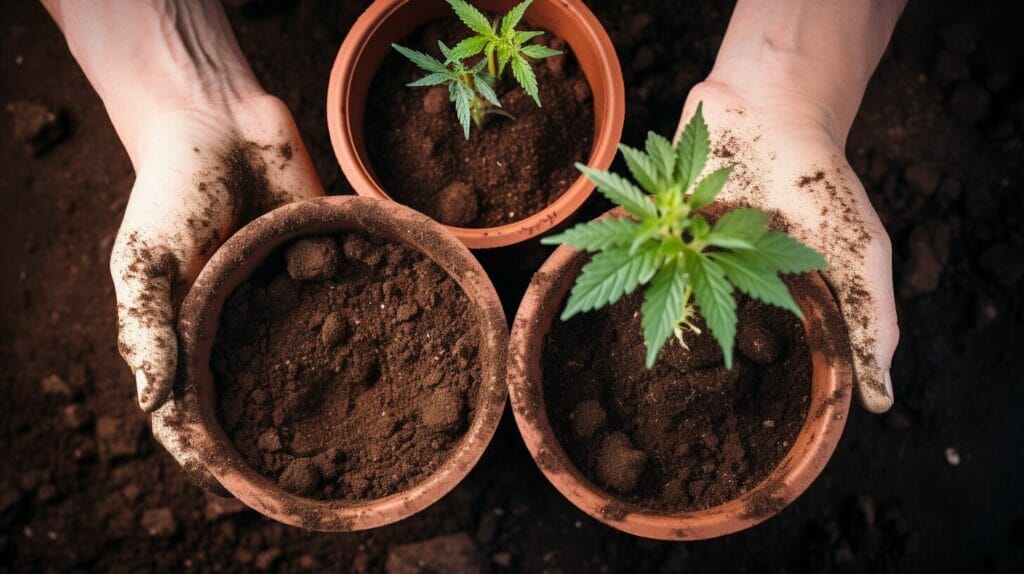
Optimal Watering and Drainage for Cannabis Plants
Watering and drainage are crucial factors in the well-being of your cannabis plants. Overwatering is one of the most common mistakes growers make, leading to root rot and other issues. On the other hand, insufficient watering can cause the plants to wilt and stunt their growth. Follow these tips to ensure your plants receive the right amount of moisture:
Watering Techniques
When watering your cannabis plants, ensure that the soil is completely dry before adding more water. Overwatering can lead to nutrient leaching and root rot, which can cause long-term damage to your plants. The amount of water needed will depend on the size of your container, the stage of growth, and the environmental conditions.
As a general rule, water your plants until the excess water drains out of the bottom of the container. This ensures that the water reaches the roots and promotes healthy growth. Avoid watering the leaves, as this can lead to mold and other issues.
Drainage
Adequate drainage is essential to prevent overwatering and root rot. Ensure that your containers have enough holes at the bottom to allow excess water to drain out. You can also add a layer of rocks or perlite at the bottom of the container to promote drainage.
If you notice that the soil is not draining properly, you may need to repot your plants in a container with better drainage or add more drainage holes to the existing one. Remember, healthy drainage can prevent a lot of problems down the line.
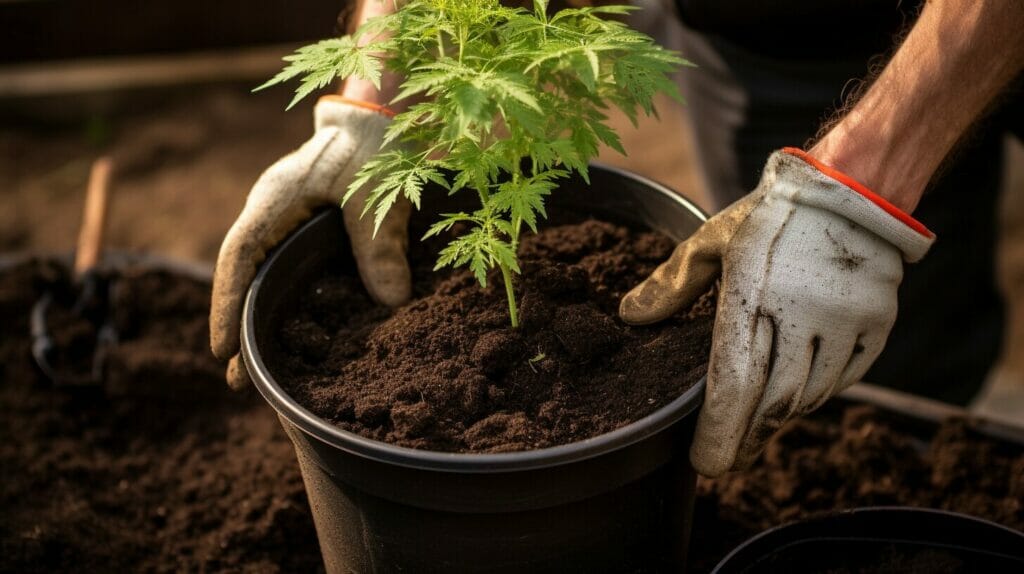
By following these tips, you can help your cannabis plants thrive and avoid common issues associated with watering and drainage. Take the time to monitor your plants’ moisture levels and adjust accordingly, and you’ll be rewarded with healthy, vibrant plants.
Maintaining Soil Health and Preventing Common Issues
One of the most critical factors in cannabis cultivation is maintaining soil health. Healthy soil provides the right nutrients and environment for your cannabis plants to grow and thrive. However, unhealthy soil can lead to nutrient deficiencies, pests, and diseases that can negatively impact your yields. To prevent common soil issues, follow these tips:
Crop Rotation
Crop rotation is the practice of alternating crops on the same plot to prevent depleting the soil of its nutrients. For cannabis cultivation, it’s best to rotate crops every few years to prevent soil-borne diseases and pests from building up over time. Additionally, rotating crops will help maintain healthy soil pH levels that are beneficial for cannabis growth and yield.
Soil Sterilization
Soil sterilization is the process of killing all bacteria, fungi, and other pathogens in the soil to prevent contamination of your cannabis plants. You can sterilize soil by heating it in an oven or autoclave or by using chemicals like methyl bromide. However, it’s essential to note that sterilization can also kill beneficial microorganisms that are necessary for healthy soil. Therefore, it’s best to use sterilization sparingly and only when necessary.
Using Cover Crops
Cover crops are plants that are grown in between cannabis crops to help maintain healthy soil. Cover crops can help prevent soil erosion, add organic matter to the soil, and improve soil structure. Additionally, cover crops can fix nitrogen in the soil, providing a natural source of nutrients for your cannabis plants. Some popular cover crops for cannabis cultivation include clover, wheat, and rye.
Monitoring Soil pH and Nutrient Levels
Regularly monitoring soil pH and nutrient levels is crucial for maintaining soil health. Use pH testing kits to measure soil pH and amend the soil if necessary to maintain a pH between 6 and 7. Additionally, use nutrient testing kits to determine if your plants are receiving the necessary macronutrients and micronutrients. If a deficiency is detected, adjust your nutrient mix accordingly to ensure optimal plant growth and yield.
By following these tips, you can maintain healthy soil, prevent common soil issues, and ensure the success of your cannabis crop.

Conclusion
Choosing the right soil for cannabis plants is crucial for achieving optimal growth and yield. A suitable growing medium, balanced soil pH, and essential nutrients are all essential components of a healthy growing environment.
By following the tips and recommendations outlined in this guide, cannabis growers can nurture their plants with the care they deserve. Testing and adjusting soil nutrient levels, promoting appropriate watering and drainage, and maintaining soil health are all necessary steps in ensuring that cannabis plants thrive.
It is also important to be aware of potential issues, such as nutrient deficiencies, pests, and diseases, and take steps to prevent them. Crop rotation, soil sterilization, and other practices can help prevent these problems and promote long-term success.
We hope this guide has provided valuable insights into soil selection and cultivation for cannabis plants. We encourage readers to apply the knowledge gained to enhance their own cannabis cultivation practices and enjoy the rewards of a healthy, thriving crop.
FAQ
Q: Why is choosing the right soil important for cannabis plants?
A: Selecting the right soil is crucial because it can enhance the growth, yield, and quality of cannabis plants.
Q: What are the different types of growing mediums for cannabis?
A: Cannabis can be grown in soil-based mediums, hydroponics, or coco coir, each with its own pros and cons.
Q: What should I consider when choosing a soil mix for cannabis?
A: When selecting a soil mix for cannabis, it is important to prioritize organic soil, as it provides numerous benefits to plant health and flavor profile.
Q: How can soil amendments improve the quality of the soil for cannabis plants?
A: Soil amendments such as compost and worm castings can enhance soil fertility and nutrient content, leading to healthier plants.
Q: Why is soil pH important for cannabis plants?
A: Maintaining the proper soil pH level is crucial for nutrient availability and optimal growth of cannabis plants.
Q: What are the essential nutrients for cannabis plants?
A: Cannabis plants require nitrogen, phosphorous, and potassium, as well as micronutrients, for healthy growth and cannabinoid production.
Q: How can I test and adjust the soil for cannabis plants?
A: Testing the nutrient content and pH level of the soil is essential. Based on the results, you can make adjustments to create an ideal growing environment.
Q: What should I consider for optimal watering and drainage of cannabis plants?
A: Proper watering techniques and achieving the right balance between moisture retention and drainage are crucial to prevent overwatering or waterlogging.
Q: How can I maintain soil health and prevent common issues for cannabis plants?
A: Practices such as crop rotation and soil sterilization can help maintain soil health and prevent nutrient deficiencies, pests, and diseases.
Suggested Articles
;)
;)
;)




 13 Feb 2026
13 Feb 2026  7 min read
7 min read
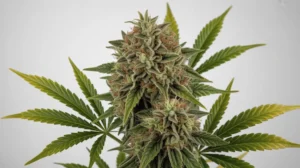
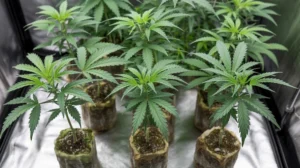
 December 26, 2023
December 26, 2023 


RESPONSES (0)
No responses yet. Be the first to respond!